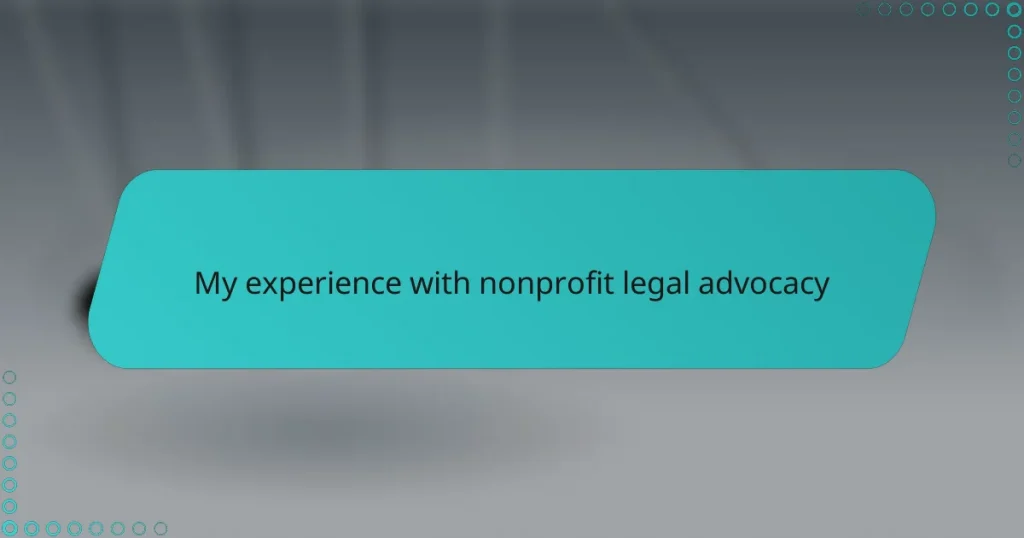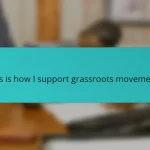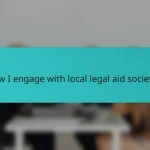Key takeaways
- Legal advocates provide essential support by combining legal knowledge with empathy, aiming to empower individuals and foster systemic change.
- Key services in nonprofit advocacy include direct legal representation, policy advocacy, and community education, all of which enhance individual and collective resilience.
- Challenges in nonprofit advocacy include limited resources and emotional toll, emphasizing the need for persistence and self-care.
- Effective advocacy relies on clear communication, technology for case management, and collaborative efforts among organizations.
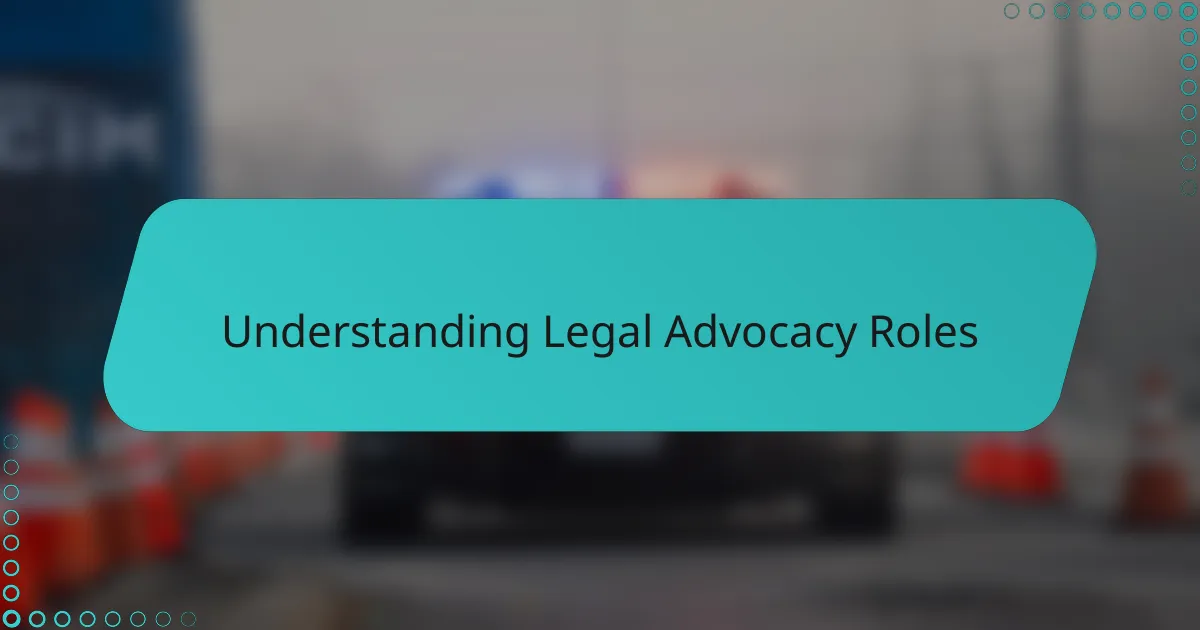
Understanding Legal Advocacy Roles
Legal advocacy roles can sometimes seem like a maze, but from my experience, they boil down to one core mission: giving a voice to those who often go unheard. Have you ever wondered what it takes to stand up not just for yourself but for an entire community? That’s precisely what legal advocates do—they bridge the gap between complex laws and real human struggles.
When I first stepped into the nonprofit legal advocacy world, I quickly realized these roles aren’t just about knowing the law. It’s about empathy, persistence, and a deep commitment to justice. I found myself navigating emotional conversations, which reminded me that behind every case is a person’s story waiting to be acknowledged.
Sometimes, I ask myself what distinguishes a legal advocate from a lawyer. It’s the unyielding dedication to systemic change and the ability to wear many hats—counselor, mediator, and strategist—all at once. This multifaceted nature is what makes legal advocacy both challenging and incredibly rewarding.
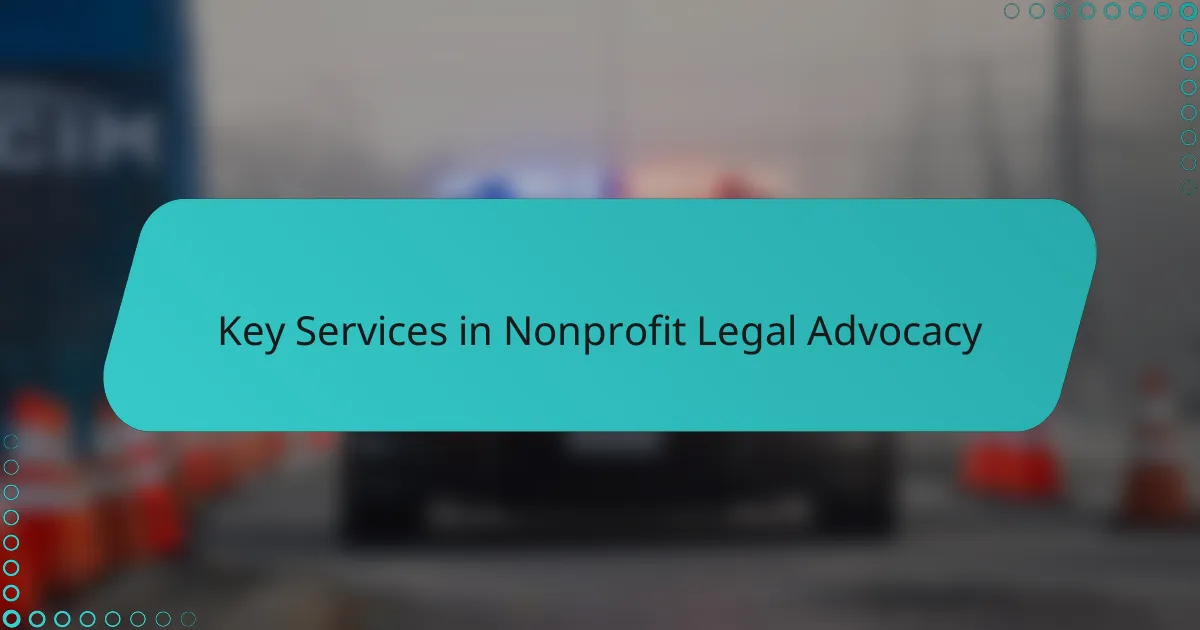
Key Services in Nonprofit Legal Advocacy
One of the key services I encountered in nonprofit legal advocacy is direct legal representation. When I first walked into a community meeting, I saw how crucial it was to have someone who not only understood the law but could also translate it into clear steps for individuals facing daunting problems. Have you ever felt overwhelmed trying to navigate a legal system that seems designed for experts? That’s exactly where these advocates make a difference.
Another vital service is policy advocacy. This isn’t just about helping individuals—it’s about changing the rules to create lasting impact. I remember helping draft recommendations that aimed to close loopholes causing real harm to vulnerable populations. It struck me then how legal advocacy can be both a shield and a sword: protecting rights here and paving new paths there.
Finally, education and outreach stood out to me as an empowering service. It’s one thing to provide help; it’s another to equip people with knowledge so they can stand up for themselves in the future. I’ve witnessed clients transform from unsure and intimidated to confident and informed, which to me, feels like the heart of what nonprofit advocacy is all about. Could there be a more rewarding outcome than that?
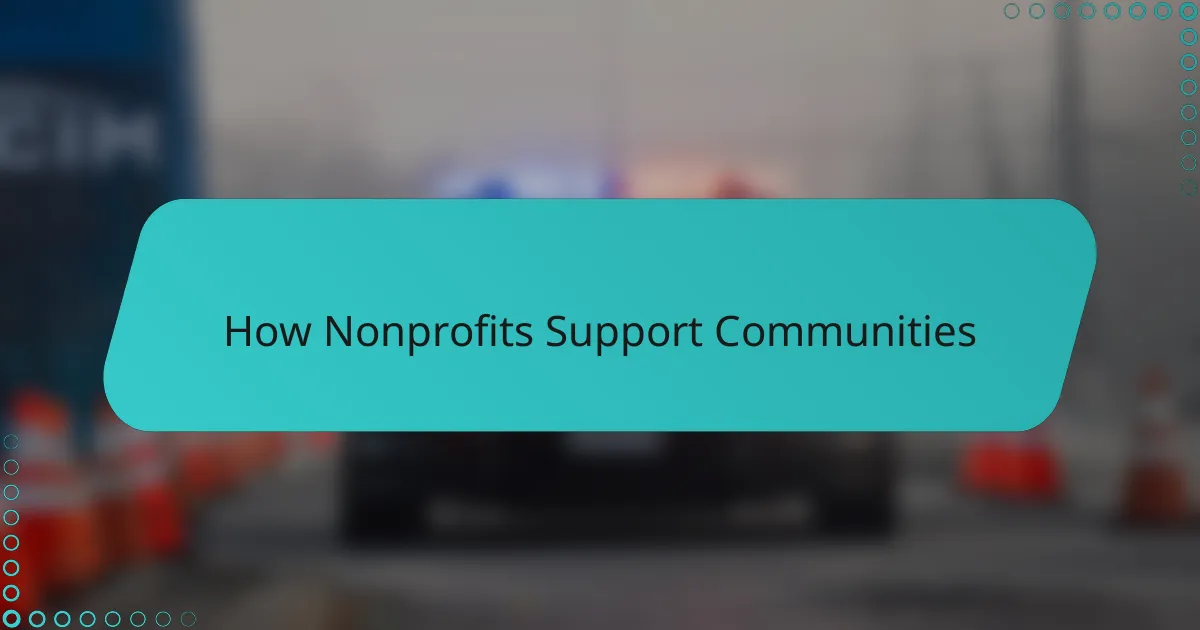
How Nonprofits Support Communities
Nonprofits play an incredible role in weaving together the fabric of communities by addressing legal needs that often go unnoticed. I recall a project where a nonprofit helped a neighborhood fight against unfair housing policies—seeing neighbors come together, armed with newfound knowledge, was truly inspiring. Have you ever seen how collective action, sparked by legal support, leads to real change?
What strikes me most is how nonprofits don’t just patch problems temporarily—they build lasting resilience. I’ve watched families gain access to resources and legal protections that transformed their sense of security. When people feel supported like this, it’s not just about legal wins; it’s about restoring hope and dignity.
These organizations also serve as connectors, linking individuals with other vital services and networks. In my experience, the community doesn’t stand alone; nonprofits act like anchors, holding everything steady when things get tough. Isn’t it powerful to realize that legal advocacy can be the lifeline that keeps a whole community afloat?
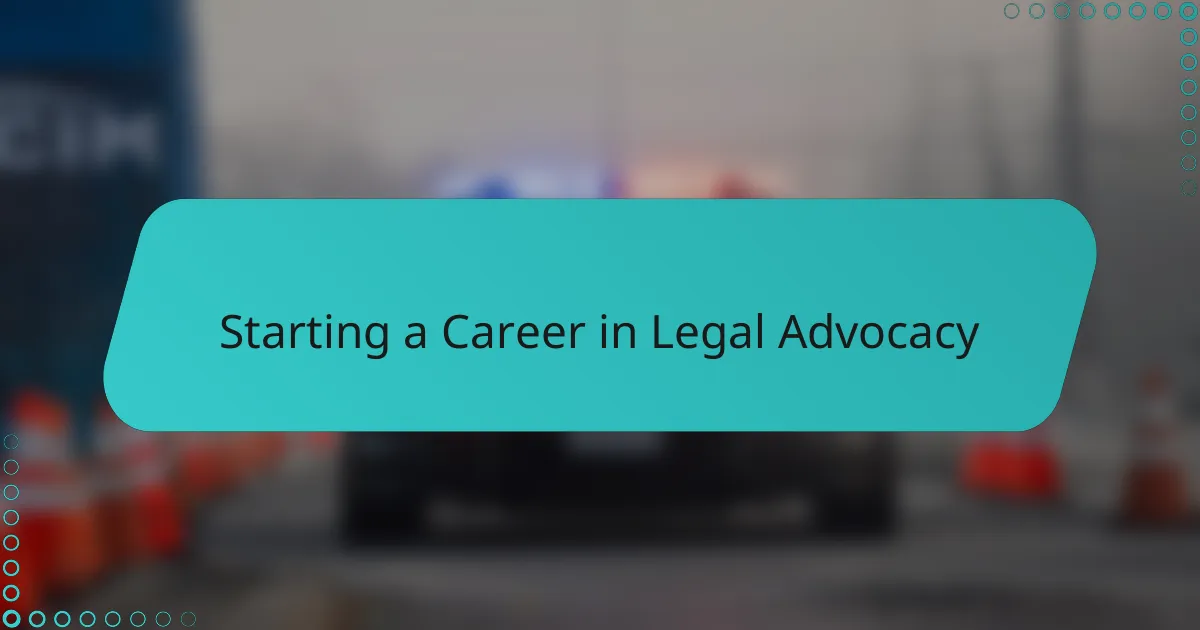
Starting a Career in Legal Advocacy
Starting a career in legal advocacy felt like stepping into a world where passion meets purpose. I remember my early days, filled with both excitement and uncertainty, wondering if I had what it takes to make an impact. Have you ever faced a challenge that seemed bigger than yourself? That’s how I felt, but it soon became clear that determination and a willingness to learn were my best tools.
The path isn’t always straightforward. I found that gaining practical experience through internships or volunteer work was invaluable. It was in those moments, sitting beside seasoned advocates, that I truly understood how theory translates into real-world change. I often asked myself, how can I contribute meaningfully? The answer came through small victories and listening closely to the stories of those I was helping.
One thing I learned quickly is that empathy is just as important as legal knowledge. The people we serve are navigating difficult circumstances, and being able to connect on a human level made all the difference. In my opinion, starting a career here means embracing both the legal challenges and the emotional ones—and growing stronger with each step.
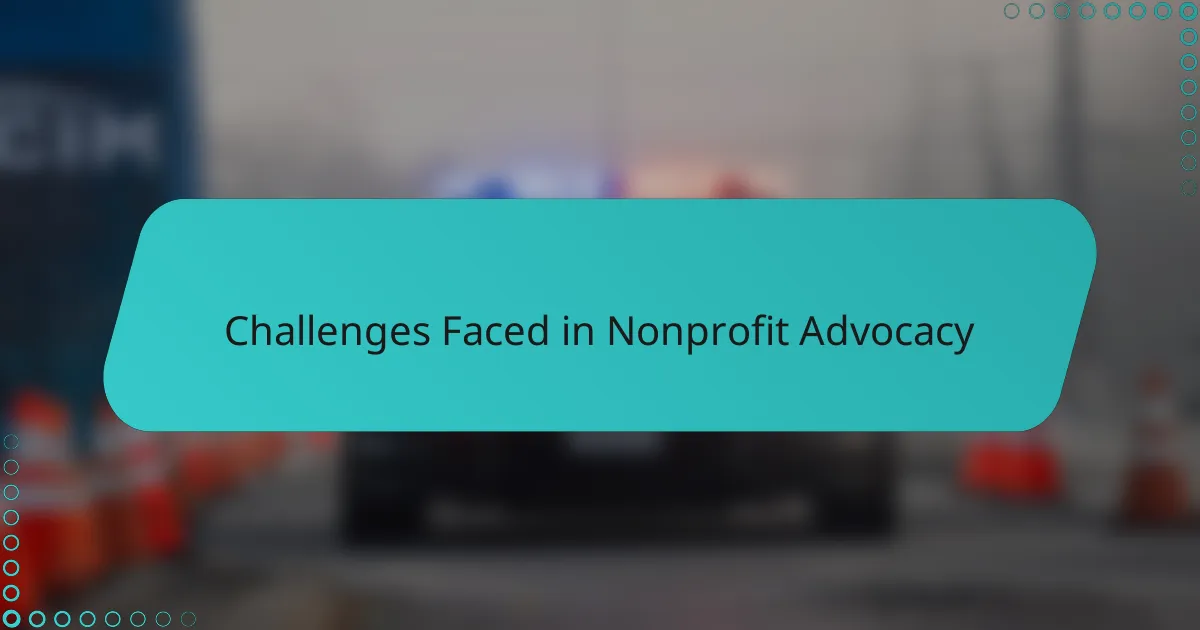
Challenges Faced in Nonprofit Advocacy
Working in nonprofit advocacy, I quickly encountered the harsh reality of limited resources. Have you ever tried to stretch a thin budget to cover so many urgent needs? It’s frustrating because every case feels equally important, yet there just isn’t enough time or funding to address them all thoroughly.
Another challenge that struck me was dealing with the emotional toll. Advocating for clients facing injustice means hearing deeply painful stories day after day. I found myself carrying that weight outside of work, questioning how to stay strong without becoming overwhelmed by the very struggles I’m trying to help solve.
I also noticed how systemic barriers often feel like a maze with no clear exit. Navigating complex laws and bureaucracies can stall progress despite our best efforts. Have you ever wondered how one person can make a dent against such entrenched hurdles? For me, it’s about persistence—and knowing that every small victory counts in this long fight for justice.
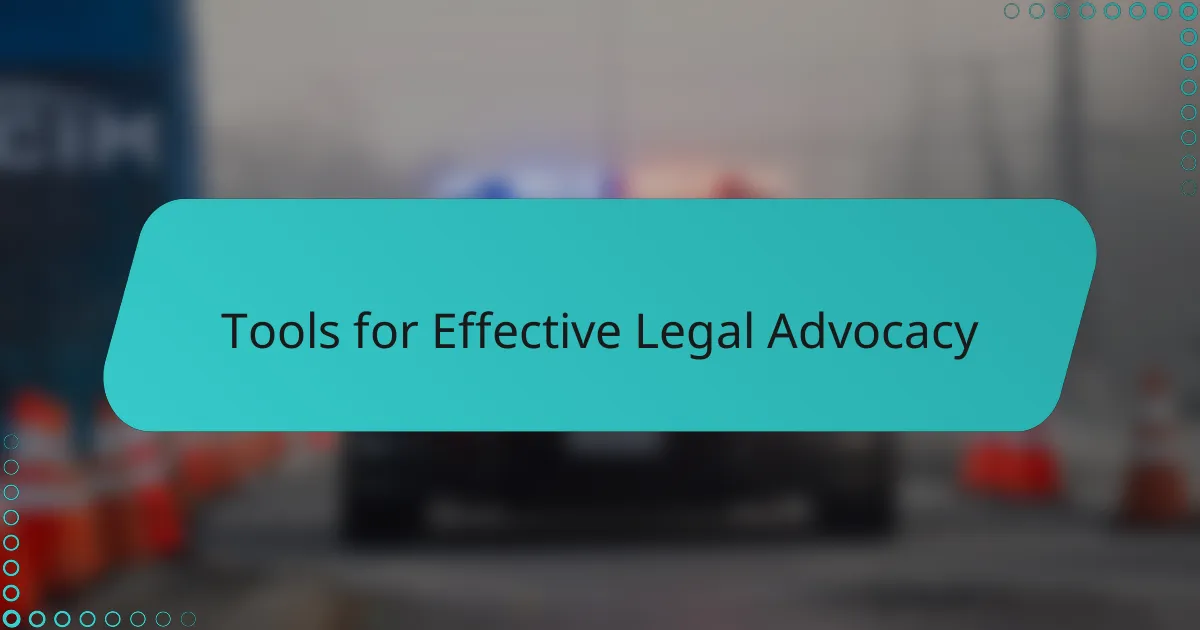
Tools for Effective Legal Advocacy
One of the most indispensable tools I’ve found in effective legal advocacy is clear, accessible communication. When I first started, I realized that breaking down complex legal jargon into everyday language not only empowered clients but also built trust. Isn’t it amazing how simply speaking plainly can open doors that strict legal phrases might keep shut?
Technology also plays a crucial role. From case management software to virtual meeting platforms, these tools helped me stay organized and connected with clients, especially when resources were tight. Have you ever tried managing dozens of cases without a reliable system? I can attest it’s nearly impossible.
Lastly, collaboration tools like shared databases and secure messaging transformed the way I worked with colleagues and partner organizations. Legal advocacy isn’t a solo endeavor, and having the right tools to coordinate efforts made all the difference in achieving meaningful outcomes. Don’t underestimate how much smoother advocacy goes when everyone’s on the same page.
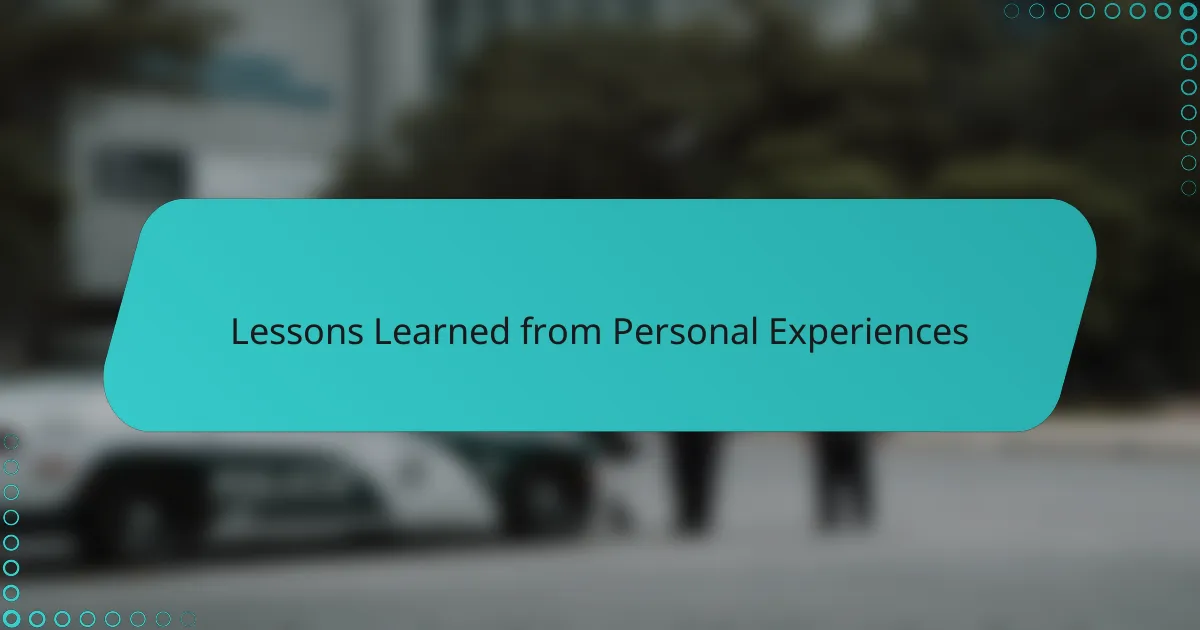
Lessons Learned from Personal Experiences
One lesson that has stayed with me is the importance of patience. Legal advocacy doesn’t deliver instant results; sometimes progress feels painfully slow. Have you ever felt the frustration of pushing for change, only to encounter endless red tape? I learned that resilience—not speed—is what truly drives impact over time.
Another insight came from witnessing the power of listening. Early on, I thought legal advice alone was enough, but I soon realized how essential it is to hear clients’ stories fully. It’s in their experiences that the real issues emerge and the right solutions begin to take shape. Don’t you find that when people feel truly heard, the whole process becomes more meaningful for everyone involved?
Finally, I discovered how vital self-care is in this field. After countless emotionally charged cases, I noticed burnout creeping in. Have you ever tried to give your all while carrying the weight of others’ struggles? Taking time to recharge isn’t selfish—it’s necessary to sustain the passion and compassion this work demands.
